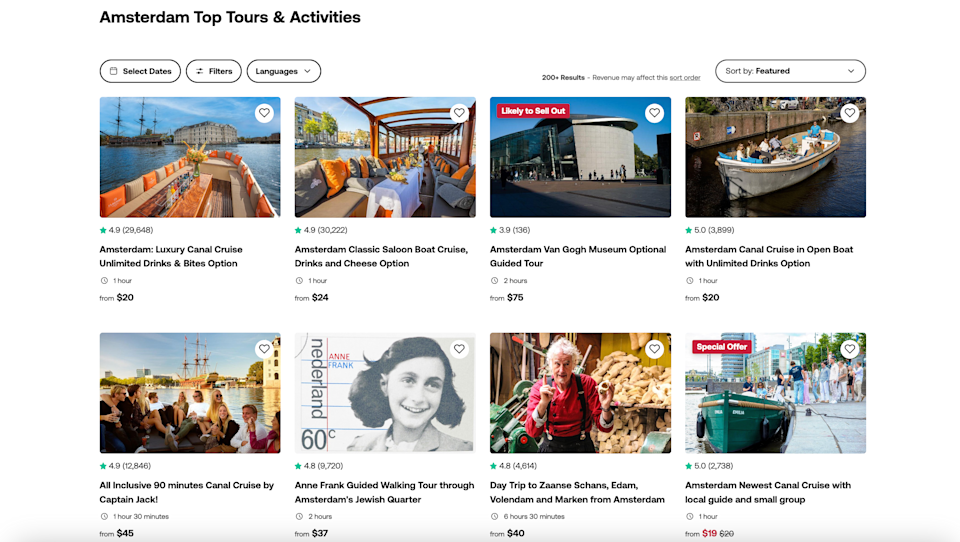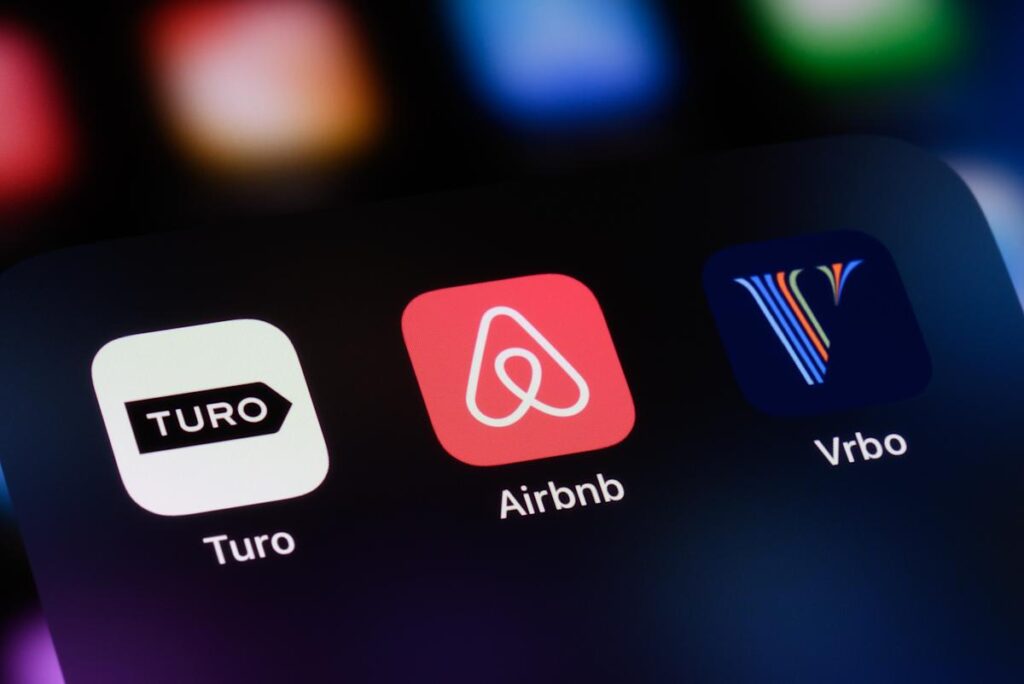Much of the American tech boom over the last few decades can be sourced to generally the same concept—a frequent transaction that has a fair amount of inefficiency and uncertainty that could be made more efficient and transparent and then scaled? It helps explain the success of everything from Uber to Warby Parker, Google Maps to Craigslist. And, of course, Airbnb, which was the dominant travel story this week after it unveiled two concepts it believes will revolutionize travel and the company’s bottom line.
The home-sharing website and application has already transformed travel. When it took off, travelers suddenly had many more options at a variety of price points. Cute neighborhoods without many hotels were now available. Airbnb offered stays with personality when hotels often felt devoid of them. You could do laundry, and your hosts had less cliche recommendations than a concierge. Plus, there was some sense of transparency, as listings came with photos and reviews from past guests.
But the biggest selling point was price. If you were a budget traveler, you could rent a room in an multi-room apartment or a studio the size of a closet. Or split a one-bedroom with a pull-out couch four ways. Suddenly, a Paris trip with three of your college friends was suddenly very affordable in a way it never was before. Your family could all travel together, as a three-bedroom apartment was leagues more affordable than three hotel rooms. And so on.
Somewhere in the past few years, though, the shine for Airbnb wore off.
Cities worldwide faced with housing crises targeted Airbnb and other short-term rental companies, issuing either outright bans or regulations that put serious curbs on the spread of apartments. (On the housing affordability front, Airbnb plays a big part, but it has also been an easy scapegoat for cities that have made increasing the housing supply prohibitive, but oh well.) It was politically easy because Airbnb, along with companies like Uber and Amazon, had been heavy-handed and/or arrogant in several instances in their dealings with various governments.
Whereas charm was formerly a part of the Airbnb experience, it soon became the case that nearly every house you stayed in worldwide looked pretty similar inside. Servicing the most universal of tastes became a necessity, and the realities of heavy guest usage had hosts turn to cheap and sturdy.
Airbnb taking you to a residential neighborhood that felt “authentic” was replaced by neighborhoods filled with other foreigners who were also in Airbnbs. Think Condesa in Mexico City or the Marais in Paris.
But by far the biggest knock on Airbnb was cost, as laughably exorbitant fees ran rampant. This was tricky since Airbnb has no loyalty program, and so despite a lot of Silicon Valley-speak about the wonders of being in somebody else’s home, the thing that made Airbnb successful—its ability to deliver users something (big spaces, neighborhood apartments, whatever) that they couldn’t otherwise afford—was slipping away.
There has been chatter for a year now about Airbnb’s plan to revamp and relaunch its not-so-successful Experiences program, which offered customers everything from tours to cooking classes in various destinations. This week, with much fanfare, the company announced not only a revamped “Experiences” but a new offering, “Services.”
When newspapers or officials talk about the travel industry, people usually think about airlines, hotels, car rentals, and such, as they involve big corporations with a lot of public awareness and money. But the industry also includes small players like tour operators, guides, photographers, spas, and others who cater to visitors. Combined, those smaller players represent huge amounts of money. $1 trillion, according to Skift. But they’re often accessed on an individual basis.
And, importantly for a tech company eyeing opportunities, accessing them isn’t terribly efficient or transparent. You often rely on word of mouth to find them, you’ll need to negotiate the costs, and you don’t exactly know what kind of quality you’ll get. (There are some existing platforms, like Viator, that address some of these.)
This is what Airbnb and its meme-able CEO Brian Chesky are trying to gobble up. They want Airbnb to be the everything app for what you do once you get to your destination. Where you stay, what tours you go on, how you work out, what special food experiences, how you relax or get pampered, and so on. It’s offering tours, hair appointments, trainers, private chef bookings, spa treatments, and more. Some of the stuff they promoted in news features around the announcement does sound cool: lucha libre training with a professional wrestler in Mexico City, for one.
There’s tremendous upside to a lot of this. It’s a way to create revenue that isn’t likely to make Airbnb the bogeyman for the affordability crisis. The company will be able to point to all the business it’s sending to small businesses and operators in these destinations. The review system would give some sense of quality control, and so, too, would there be price transparency.
It’s also potentially a way to break free from overtourism, driving people to spend their time on things other than checking off the same things as everybody else.
I remain, however, skeptical. Deeply skeptical.
For instance, it was only a few months ago that Airbnb announced “co-hosting” so it could cut out property managers and get that money for itself. Now, it is positioning itself to do that for all of these categories, many of which, when booked via your hotel concierge, because you saw them on social media, or a friend recommended, currently come with no fees. It’s a transparent money grab.
Second, it’s great that they’ll potentially bring business to all these operators, but are we going to pretend fees won’t go up? Or that they won’t squeeze them for a bigger and bigger portion of the proceeds a la Amazon?
Of course, my other source of skepticism has to do with how much these various operators need Airbnb. Sure, it might bring in a steady stream of customers. But there’s nothing to stop you from turning that into dedicated word-of-mouth customers and direct bookings, which already happens with Airbnb property listings operated by management companies.
Chances are, if you’ve liked a holiday rental you found on Airbnb that it has a website, and next spring break, you can just book it that way.
Airbnb experiences in Amsterdam
But my biggest source of skepticism came when I opened Airbnb today, since I’m in one of the biggest destinations in the world—Amsterdam—to see what it’s offering while I’m here. Much has been made by Chesky of how the logos for these new sections are not two-dimensional and how much time he spent on color and so on. But looking at the Amsterdam pages, it all looks … pedestrian? This is all stuff that one can find pretty easily. Which makes me a bit disappointed to see how credulous the coverage has been in mainstream travel outlets.
By way of comparison, here is Viator’s page for Amsterdam:

Viator’s offerings for Amsterdam
Airbnb’s offerings aren’t visually more pleasing, and it also isn’t more efficient in terms of nomenclature, photos, and descriptions. Curious to make sure Amsterdam wasn’t an anomaly, I also checked out services in New York City:

Fitness offerings in New York City

Spa treatments on Airbnb in NYC
To be fair, a lot of this is relatively new, so there should be a grace period. But one would think that with all the fanfare, it would all be a bit more impressive?
Read the full article here


